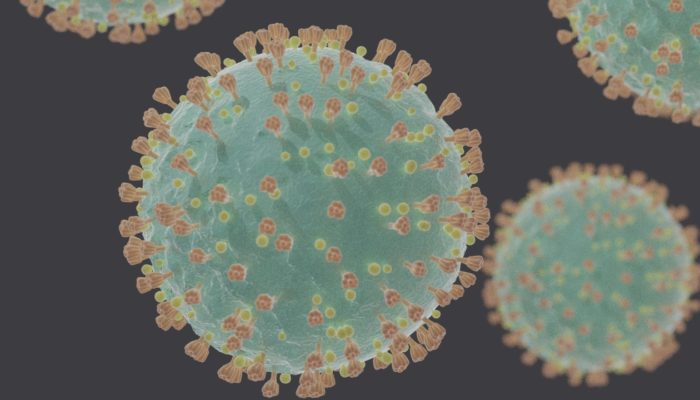What the COVID-19 Pandemic Means for Refugees and Asylum Seekers in the UK
Over 1.9 million cases of Coronavirus have been recorded since the disease began to spread at the end of 2019 – it is now affecting 199 countries and territories across the world. Over 114,000 deaths have been registered.
Globally, the pandemic is causing unprecedented levels of disruption and suffering, while disproportionately harming the most vulnerable in society. Of those most adversely affected – including people over 70, or those with underlying health conditions – refugees and asylum seekers remain uniquely at risk. Yet, as the pandemic spreads across the globe and cripples economies, little attention has been paid to the danger it poses to the 70 million people displaced worldwide – or to address the grave risk they face as borders are shut and lockdown measures are implemented. While we are reminded of the importance of regular hand washing, water is an evasive luxury for many of them – and forced into overcrowded camps and inhumane conditions, social distancing remains a cruel joke.
Social Distancing in Crowded Conditions
Since the 2016 EU-Turkey agreement – designed to deter asylum seekers from entering Europe – around 40,000 refugees have remained stuck on the Greek islands of Lesbos, Chios, Kos, Samos and Leros. There are now nearly 50,000 refugees in Greece, forced into overcrowded camps as they await the processing of their asylum claims.
The largest of these camps, Moria on the Greek island of Lesbos, currently hosts 18,342 people – with no electricity, scarce water, and where children play in rivers of mud and piles of rubbish. It was originally built for 2,200 people. In parts of the camp, there is just one water tap for 1,300 people. For these people, the WHO’s advice to observe social distancing and good hygiene seems almost derisive.
Human rights groups such as Amnesty International have criticised the EU for turning its back on Greece and failing to address the dire conditions in these camps. With the first case of COVID-19 on the islands confirmed earlier this month, there is growing pressure on the EU to evacuate the 50,000 asylum seekers currently living in these high-risk environments – and to prevent many avoidable deaths.
Inadequate Support
In the UK, meanwhile – where there are currently over 88,000 confirmed cases of COVID-19 – the fate of asylum seekers remains precarious. With mainstream benefits and applying for a council house both prohibited, many destitute asylum seekers are left to seek out accommodation through support networks or charities. But a substantial amount of those seeking shelter end up in sub-standard accommodation, which can mean anything from lack of heating and hot water to rat-infested homes. In fact, research by the ICIBI [pdf] found that only a quarter of asylum properties met contractual standards. In one instance, the NHS found that damp and poor ventilation resulted in the ill-health of a child – and as Coronavirus is a respiratory disease, those forced to live in such appalling conditions, which fail to meet even basic human needs, become far more susceptible to infection.
In addition, the immigration status of asylum seekers – namely the absence of ‘Indefinite Leave to Remain’ – often leaves them with poor access to healthcare in the UK. Further to this, taking up employment is prohibited, making destitution a depressing fact of life. Matt Hancock, the Secretary of State for Health and Social Care, recently admitted he could not survive on statutory sick pay – at £94 a month. When asylum seekers arrive in the UK, the current financial assistance they receive amounts to £37.75 per week. Yet for years we have been fed the image of asylum seekers ‘invading’ the UK to take advantage of its generous welfare and healthcare system, which the government continues to under-fund.
In fact, the COVID-19 pandemic has exposed just how insufficient support from the government is for the most vulnerable – especially in comparison with countries such as Germany. While critics have spent years decrying faults in the system, it is only when the problem hit middle-class professionals that funds were found to rectify it, delineating just how deep the roots of inequality run.
Asylum seekers are also said to be disproportionately likely to suffer from poor mental health – while depression and psychological stress have been shown to weaken our immune systems. Given those with underlying health conditions are at greater risk from Coronavirus, the impacts will be felt the hardest by those at the bottom of the social ladder – those already facing poverty, ill-health and malnutrition.
Across the world, the death toll is rising, businesses are closing, and public services are struggling. In the UK, the legacy of austerity has left the NHS deeply underfunded, with fewer hospital beds, fewer doctors and nurses. At the moment, only patients in hospital with flu-like symptoms are being routinely tested for the virus. Front-line healthcare workers – key workers – continue to operate in high-risk environments without protective equipment, despite WHO guidelines. How will asylum seekers fare, already marginalised within UK communities and denied access to public funds?
Lubnaa Joomun is a content writer for the Immigration Advice Service, an organisation of immigration lawyers currently providing free advice to NHS staff.
4 Responses
Leave a Reply
You must be logged in to post a comment.

Pingback : Writing About Displaced People in the Time of Coronavirus | Skugal
Pingback : COVID-19 Komt aan in vluchtelingenkampen | SDB
Pingback : COVID-19 Arrives in Refugee Camps
Thank you for this helpful article. There is a Status Now Network that is developing out of our call for leave to remain first published on 27th March. Please go to http://www.rapar.co.uk/news/an-open-letter-to-the-prime-minister-of-the-uk-and-the-taoiseach-of-ireland to read and sign, and share and join us